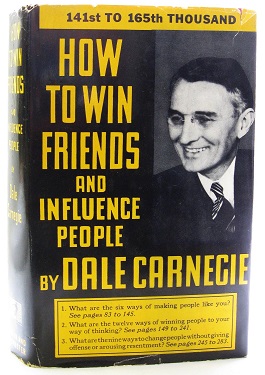Time-tested people skills
A couple of days ago, I wrote down some tips for surviving and avoiding clashes with the management. Indeed, that area was identified as a common issue in a recent survey for electrical engineers. However, communication issues probably extend far beyond the confines of our daily 9-to-5 jobs. Hence, some advice geared towards more general inter-personal relationships might come in handy.
We engineers are, more often than not, colossal nerds after all.
Now, I do realize geek-ness has come to be very much in nowadays. There’s not so much of a social stigma associated with the traditional nerd activities, compared to let’s say 10 years ago. Heck, some of the biggest box-office movie hits belong to the traditionally-nerd genres. Superheroes and hobbits, anyone?
That being said, even though the environment has become more popular towards geek-dom, it can still be quite demanding for geeks. Not because of their/our hobbies and interest, but because of us.
We tend to be somewhat socially awkward after all, and find the basic societal rules very much non-intuitive.
That’s why some formal tips and guidelines – algorithmic people skills – can be extremely useful for us. Like the ones listed below.
Classics to the resque
The title of my management post was a pastiche of the most famous and well-known self-help book of them all – Dale Carnegie’s How to Win Friends and Influence People. First published in 1937, the book has become a classic in its the field and more than simply stood the test of time. And for a good reason. Even I, an avid ebook-fan, have physical copy sitting in my bookshelf right next to my chair.

I definitely wont try to compress the entire book into a single blog post. Far from that. That’s what books are for.
Instead, there’s a single golden guideline that I wish to bring to your attention:
Focus on the other people
Probably an easiest example of this principle is conversation:
If there’s one thing people love, it’s talking about themselves. Let them, and even encourage them to do so.
Ask how their day was like, and then some more. Try to be genuinely interested in them. Ask questions, ask for details (within the non-creepy scope, of course).
Of course, that won’t be possible 100 % of the time. But, the famous 80 % is very much doable. There’s an inherent trait of curiosity in vast majority of people, after all. Yours might be sleeping, but with a little practice you can very well awaken it again.
Note that the goal here is not to become a pushover. You are very much allowed to speak about yourself every now and then. Conversations are supposed to be a two-way street after all. The key here, as everywhere else, is balance. A fifty-fifty division in a conversation is pretty much ideal, at least as a long-time average. Natural-born people-person realize this instinctively.
You probably don’t, being an engineering nerd and all that. For you, consciously focusing on other people will simply balance things out. Until now, you may have focused far too much on yourself, without even noticing it. Or equally likely, especially if you’re a quiet person, you haven’t spoken much at all. Talking about the other person will sort both of these problems out.
Not only about conversation, though
Note that this tip also extends beyond simple conversations. Indeed, it can be applied to relationships as a whole. In general, it pays off to not be such a selfish asshole.
This is also such an important tip that Mr. Carnegie actually approached it from six different angles, under the heading Six Ways to Make People Like You. But really, it could compressed into liking people first, to make them like you back. Or at least being interested in them to make yourself interesting.
I already discussed a more calculated variation of it in the management post. When trying to convince people, try demonstrate some benefit to them.
A classical example is a job interview: not many companies are going to hire you because of your sob story of how much you need the job. Corporations are careful about money. The only reason they’re going to hire you is for you to make even more money for them. Simple as that. (Note that your ability to work in a team, and other people skills, will also influence your profit potential. So, it’s not simply about your work throughput alone.)
That being said, sometimes the benefit in question will relate to some higher motives like altruism. Think of charity. People still do it, even though there might be no material or tangible benefit to them (tax exemptions aside).
And finally, you don’t have to extend this rule to every aspect of your life. Asking your friend for a beer already conveys the implicit benefit of, well, having a beer with you. No need to underline it.
Eye contact
Looking the other person in the eye is paradoxical. It is very natural, and conveys a relaxed and a positively-intimate feeling to most people.
But, at the same time it can feel extremely un-natural to some people. Like you, most likely.
As with my previous tip, or any kind of self-improvement really, the key here is conscious effort. Simply force yourself to make some eye contact. Approximately one third of the time seems to be the optimum. Just don’t time yourself with a stopwatch, or even a mobile app (there’s bound to be at least one for this very purpose). Just. Don’t.
But what if you’re so introverted that simply making half-a-second’s eye contact is demanding for you? A quick-and-dirty fix is to look the other person at the mouth. Especially at a slight distance (1 meter or more), that is actually quite hardto discern from actual eye contact. This approach has an additional benefit too: in noisy places it can help with hearing, since you are you’ll be able to do some lip-reading to supplement your hearing.

Suggest; Don’t Ask
It’s better to ask for forgiveness than wait for permission. You’ve probably heard some variation of this phrase once or twice. And for a good reason – the approach can definitely come in handy in the right place, at the right time.
Most of the time, though, a less extreme variation will be sufficient. It’s better to offer suggestions rather than ask for action.
Asking your colleagues if you could go have a beer after work some, that’s one thing. Proposing you go for a beer on Friday at 5 pm and asking who cannot join – that’s whole another thing. Both are aimed at the same goal – an afterwork. Still, the latter one will be infinitely more effective than the former. This is true especially during those days when everyone’s feeling incredibly stressed and pressed for time. Times when everyone needs a beer, but nobody would like to bother.
A firm suggestion will be what it takes to kick them into action, for everyone’s good.
Don’t complain
Nobody likes a whiner.
Perplexingly, pretty much everyone can find something to whine about, any given day. But, it gets old really fast. Really draining on whoever’s being forced to listen to you gripe.
And they won’t be around when you are facing some real trouble.
Hence, I recommend you take the same approach with complaing, as I advised you to do with coffee. Most of the time, limit it. Even more strictly than coffee. Coffee is a well-known stimulant after all, with some social benefits to boost. (Coffee room discussions, anyone?)
So most of the time: little to no complaining at all. Missed the bus this morning? Suck it up, unless you can make into a really funny story. The same for any of the million small setbacks we all face every week.
This way, when you actually do have something to complain about…When you really need someone to listen: You will be taken seriously.
Conclusion
There you have ’em. Some useful little tips for dealing with friends and strangers alike. Admittedly, some of them may feel perfectly natural and intuitive to you. That’s alright, simply keep up the good work.
But, I’m fully certain this not the case for many others. Not everybody is a natural-born people person, and some are downright abysmal in that respect.
And it’s those folks I’m aiming this post at. Hope it helps them.
Check out EMDtool - Electric Motor Design toolbox for Matlab.
Need help with electric motor design or design software? Let's get in touch - satisfaction guaranteed!

